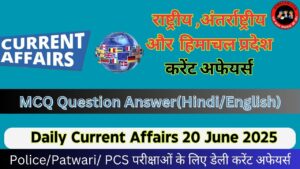CONCEPTS OF CHILD CENTERED EDUCATION -HPTET
Child-Centered Education Child-centered education is the idea that the needs and desires of the child should take precedence in structuring the learning day. The whole idea is that learning should be fun and engaging for the child, and is most likely to be that way if the child is incharge of the learning experience, rather than the adult parent or teacher. Child-centered education is most characterised by learning centers’ in a classroom that promote hands-on, active participation by the child. There may be magnifying glasses and bug slides in the science center, books and puppets that could be used to re-tell the stories in the language arts center, and wood blocks and shapes in the math center. The children are free to manipulate the objects in these centers. It is the process, the activity, the experience, that is valuable, not the facts, ideas, concepts or skills. It is a relatively new approach to education. For centuries past, adults defined what education should be and children were the ones who did the adjusting. Education was considered work, not play. Then came the softening influences of child psychologist Jean-Jacques Rousseau, as well as Dr. Marria Montessori, John Dewey, Jean Piaget and Lev Vygotsky, who all contended that a child’s self-esteem and self-concept should be built up in order to create a better learner. Soon, the colleges of education were promoting child-centered education instead of instructionally centered education.
Role of Learner in Child-Centered Education Learners are active as opposed to passive recipients of knowledge. Learners may assume a decisionmaking role in the classroom. Learners often decide what is to be learned, through which activities and at what pace. Learners can also produce materials and provide activities for the classroom.
Role of Teacher in Child-Centered Education To put this approach into practice, teachers need to help students set achievable goals; they encourage students to assess themselves and their peers; help them to work co-operatively in groups and ensure that they know how to make use of all the available resources for learning.
Read More:-Concept Of Development & Stages Of Development -HPTET
HPTET TEST SERIES :-
👉HPTET ARTS TEST SERIES(10 TEST WITH ANSWER KEY)
👉HPTET NON MEDICAL TEST SERIES(10 TEST WITH ANSWER KEY)
👉HPTET MEDICAL TEST SERIES(10 TEST WITH ANSWER KEY)
👉HPTET JBT TEST SERIES(10 TEST WITH ANSWER KEY)
MORE:- Daily HP GK Online Quiz-5 In English
 |
| Join Our Telegram Group |








